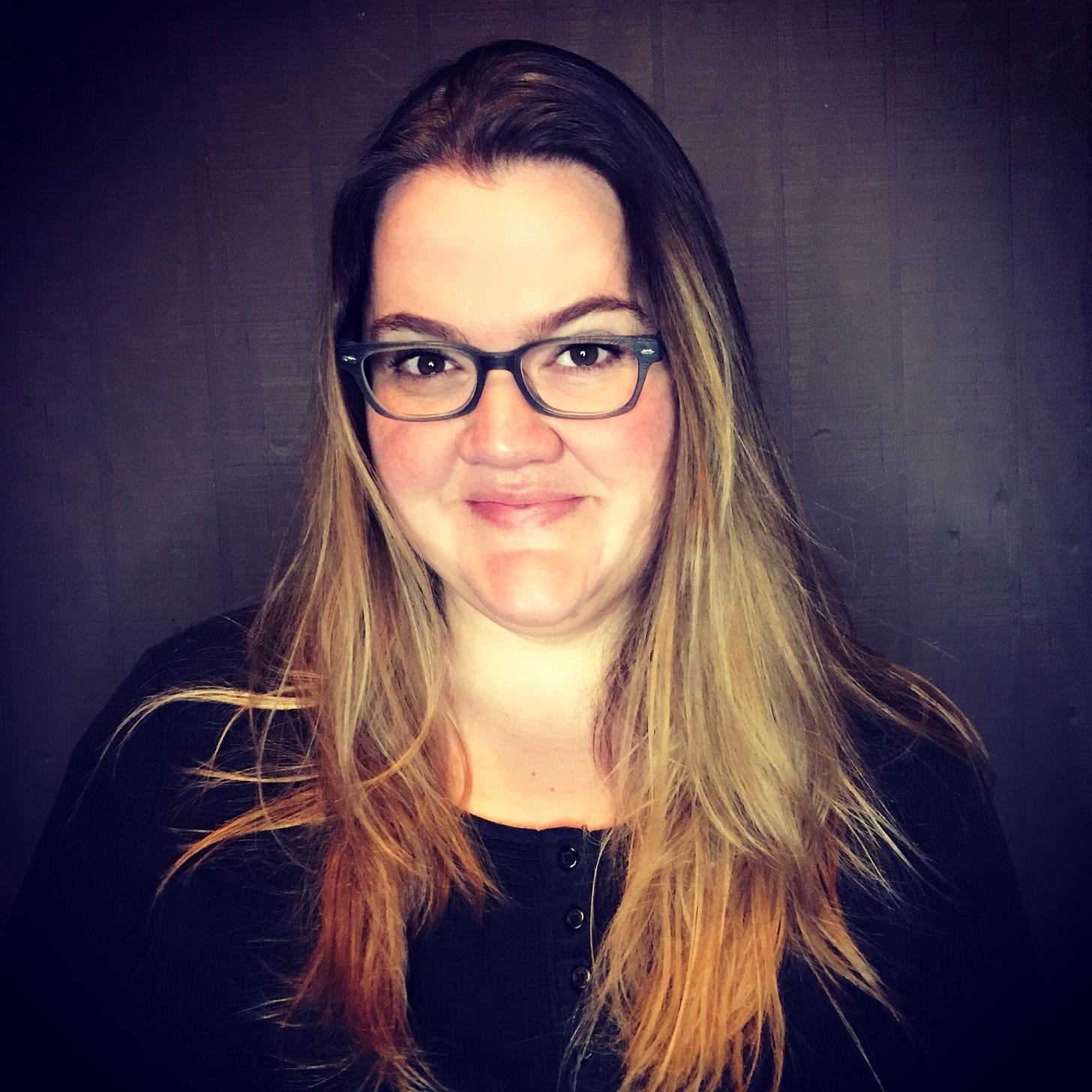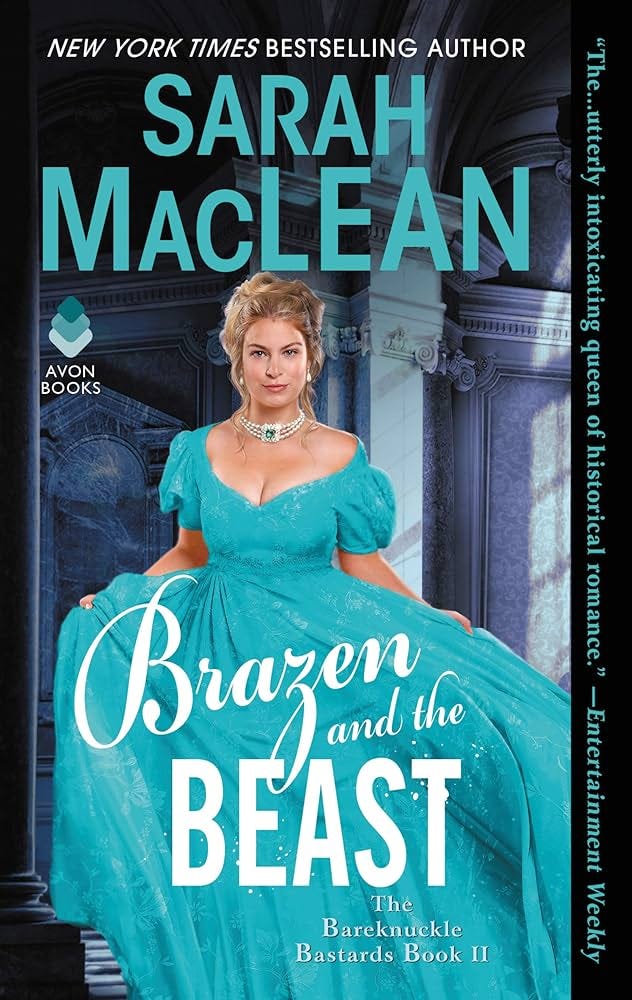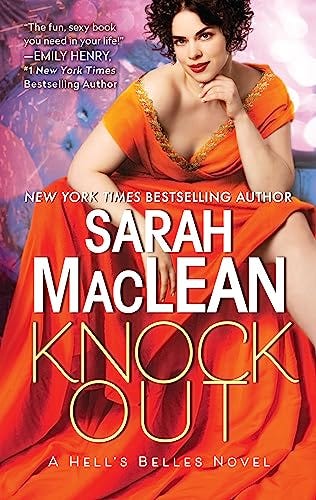Six Questions with Romance Author Sarah MacLean
We talk research, what she’s working on and, of course, what she’s reading
I was lucky enough to interview Sarah MacLean, a New York Times bestselling romance author at the Literature of Hope conference held at Yale University a few weeks ago. The conference featured authors, scholars, critics and fans discussing the history and future of the genre.
Considering romance is often mocked — and sometimes even denigrated — by the literati and academics, it was so cool and interesting to listen to panels that took the genre seriously and examined it the way we would any other literature.
Sarah was a panelists, along with Jen Prokop, her co-host of the Fated Mates podcast, discussingthe history and future of the genre. She took time to chat with me on the sidelines about her path to publishing, what she’s working on next and more. Our conversation has been edited and condensed for clarity.
How did you come to writing and publishing?
I have been a romance reader since I was 10 or 11 years old. It never occurred to me that this was a viable career, that you could actually become a writer. That felt like a thing that was for other people, not for me. But it was always the dream. My mom found this very cool thing: when I was in high school, I wrote my dream job was romance novelist.
But I did not study writing. I did not get an MFA. After I graduated college, I moved to New York City to work in publishing. I was out with friends one night, and I had had just enough beer that I said, ‘I think I could write a romance novel.’ One of my friends who was an editor at the time said, ‘I dare you.’ And, again, I had had just enough beer that it was a great idea. So, I went home, and I wrote the first chapter of what would become my first book.
Did that first chapter make it into the final version of the book?
Yes, it did. I don't know if it should have been.
You and other historical romance writers do a lot of research for your books. What’s the most interesting nugget you’ve found?
My thing about research is that I’ve never had an idea for a plot or character or an experience that would sustain one of my books that I couldn’t find evidence of in history.
I wrote a whole series about people who smuggled goods into England in the holds of ships that carried ice from Scandinavia. While I couldn’t find evidence that smuggling was happening that way, those ships did come into port regularly.
I’m writing a series now about a vigilante girl gang. It’s based on a real girl gang from the 19th century, called the Forty Elephants. While they were shoplifters and mine commit different kinds of crimes, both the gangs were anti-patriarchy and used the structure and power at play in the world around them to manipulate others in positions of power and claim space.
That sets me up for my next question. You’ve spoken before about how romance is inherently a political genre. Can you speak more to that?
Romance is the genre of feelings and human emotion. I think there is something universal about the experiences that are had on page. That said, whenever you talk about feelings, joy, hope, partnership and the ability to thrive, this is the realm of politics, small p and capital P politics.
When we talk about who gets to have joy, who gets to see themselves thrive in fiction, who gets to experience love without restrictions, that is all political whether we want to acknowledge it or not.
Can you preview what you’re working on now?
I'm working on book four of the Hell’s Belles series, which is Duchess’s book, the final book in the series. She's the mastermind of the crew. I'm also working on something else that people may hear a little about in a few months.
Lastly, any books you want to recommend?
Always. Angelina M. Lopez’s Full Moon Over Freedom is great. It’s the second in her Milagro Street series. It’s not a witch book, but there’s a magical sheen over the whole book. It feels like she’s evolving as a writer into magical realism. It’s so romantic. Her books are so sexy, and her heroines are so relatable to me. They feel difficult; they’re tough nuts to crack. They don’t trust people, they’re hurt in a lot of ways and they’re tired. They constantly have their backs out against the wall and they come out swinging every time — talk about aspirational.
Diana Quincy has a new book coming out, The Duke Gets Desperate. Her heroines are always thoughtful and grown up. The heroine of this one is so strong-minded, knows what she wants and takes up such good space. And the hero is just gone for her. I love it.
Thanks to Sarah for chatting. You can follow her on Instagram, check out her podcast and buy her books (her latest – the third in the Hell’s Bells series features an explosives-wielding Lady).
What to Read If is a free weekly book recommendation newsletter. Need a rec? Want to gush about a book? Reply to this email, leave a comment or find me on Twitter @elizabethheld.
If you're reading this on Substack or were forwarded this email, and you'd like to subscribe, click the button below.
Disclosure: I am an affiliate of Bookshop.org and I will earn a commission if you click through and make a purchase.







I love Sarah MacLean! Thank you so much for this interview!
obsessed with her! I’m listening to the Nora Roberts ep of the podcast